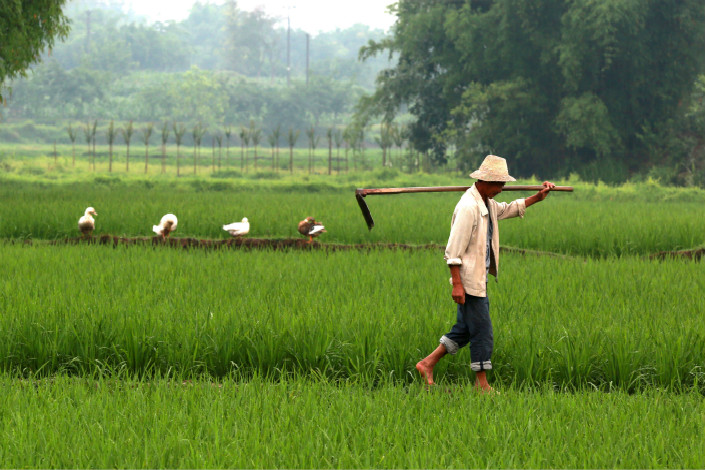The Best Reads of the Week From Caixin
Dear readers,
Shortly after the Chinese government announced the country’s economic growth rate hit 6.7% in 2017, its first acceleration in seven years, the International Monetary Fund raised its 2018 and 2019 forecasts for the world’s second largest economy to 6.6% and 6.4% respectively, citing stronger export demand.
Beside economic figures released by the National Bureau of Statistics last week, the latest changes in China’s population also caught people’s attention. Despite the relaxation of the decades-long one-child policy, the number of new born babies actually declined in 2017 following a mini-boom in 2016, the first year after the government allowed all couples to have two children. Observers are worried that the dwindling work force in China will find it even more difficult to support the country’s growing aging population.
The world’s attention was focused on a snowy town in Switzerland this week, where the annual World Economic Forum took place. Although anti-Trump rallies and a possible cancellation of the U.S. President’s visit to Davos added a twist, the not-so-familiar face of a Chinese representative to the forum drew plenty of China observers’ eyeballs. Liu He, the top economic advisor of Chinese President Xi Jinping, used to be more behind the scenes, helping top leaders make economic policy decisions. The speech at Davos in front of world leaders and business tycoons is seen as a debut for a rising political star.
Another popular read that you cannot miss this week is an explainer on China’s recent financial regulatory storm, aimed at defusing major financial risks. It details how authorities are taking on one of the three “big battles” in the country, which also include the fights against poverty and pollution. The central bank and regulators on banking, insurance and securities have gone all out to release new regulations and directives in a bid to fill in regulatory loopholes and prevent a major financial crisis.
Caixin Global also looked into a pilot program in southwestern China’s Sichuan province that allowed farmers to sell their houses to village governments, so that local authorities can reassign the rural land for development or to agribusinesses.
These are the five stories that I don’t want you to miss. Please share your comments on The Weekender section and on our other coverage at news@caixin.com.
And when you’re done perusing these must-read stories, check out Caixin’s weekly digital magazine.
Kind regards,
Doug Young
Managing Editor
IMF Raises China, Global Growth Estimates for 2018, 2019
 |
| Photo: VCG |
China Teeters on Edge of Becoming an Aged Society
 |
Zhang Huifang, 85, works out at a park in Xi’an in March. A country is considered to have an aged society when the proportion of people over 65 years old reaches 14% of the population. In China, the figure rose to 11.4% in 2017. Photo: Visual China |
China Will Open Financial Sector This Year, Xi Adviser Says
 |
Liu He (above) told the Davos forum that China will implement further opening-up measures in banking, securities and the insurance sectors this year. Photo: IC |
China Buys Abandoned Rural Homes to Free Up Land for Development
Pilot program also introduces caps on free land given to farmers to build houses
 |
A farmer walks across a field in Sichuan province's Lu county in May 2015. The county government has broken new ground by capping the amount of land available free-of-charge to villagers for home construction. Photo: VCG |
China’s Financial Crackdown: What You Need to Know

- 1Cover Story: China Carves Out a Narrow Path for Offshore Asset Tokenization
- 2Drownings Shake Chinese Enthusiasm for Travel to Russia
- 3Over Half of China’s Provinces Cut Revenue Targets
- 4Li Ka-Shing’s Port Empire Hit by Forced Takeover Amid Panama Legal Dispute
- 5In Depth: China’s Mutual Fund Industry Faces Overhaul After a Banner 2025
- 1Power To The People: Pintec Serves A Booming Consumer Class
- 2Largest hotel group in Europe accepts UnionPay
- 3UnionPay mobile QuickPass debuts in Hong Kong
- 4UnionPay International launches premium catering privilege U Dining Collection
- 5UnionPay International’s U Plan has covered over 1600 stores overseas



